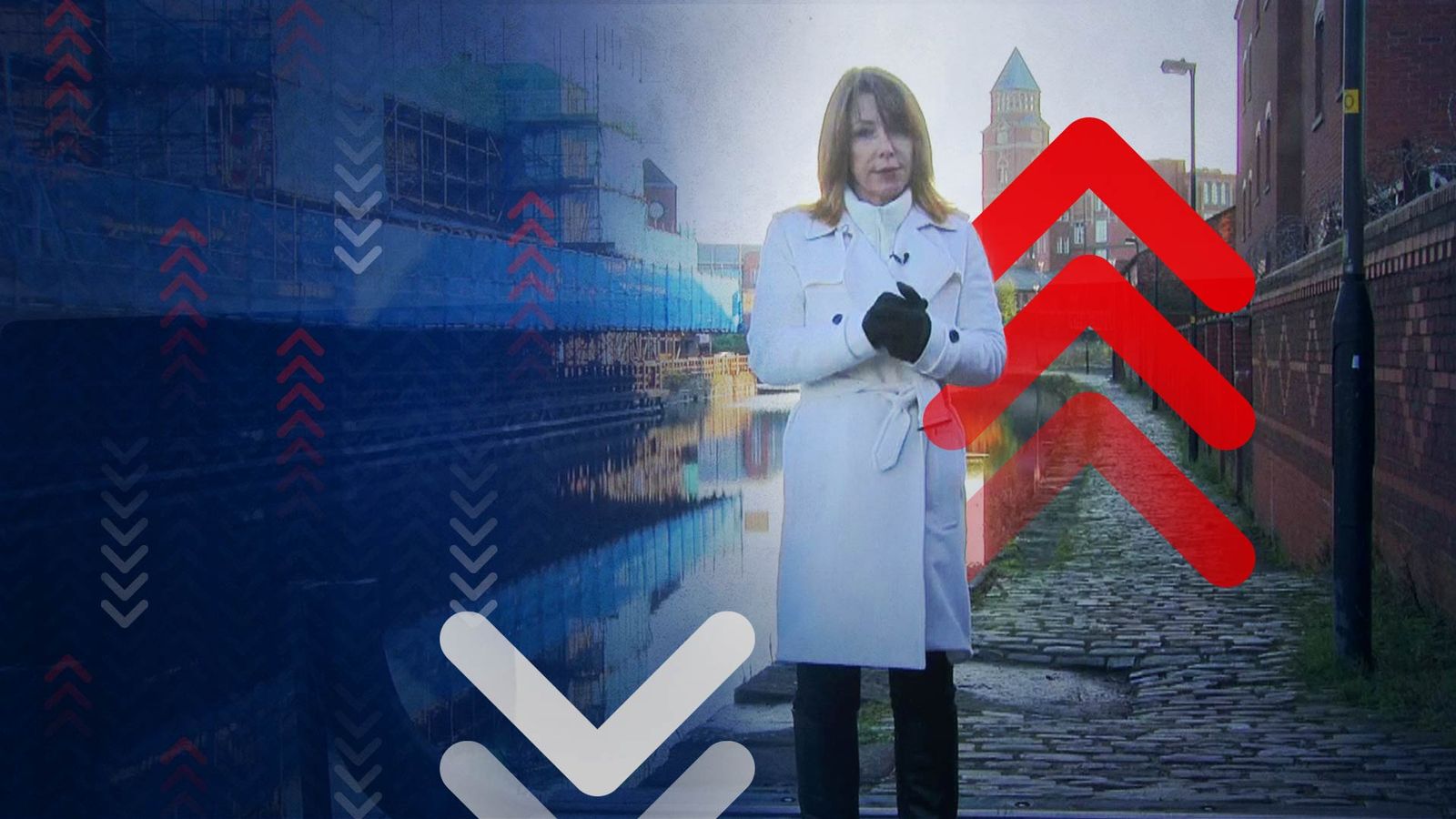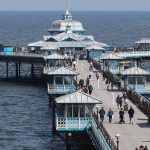It’s been a long time since I returned to Wigan.
Situated equidistant between Liverpool and Manchester, the old mining town has stood proudly on the banks of the River Douglas, and later the Leeds Liverpool canal, since at least the seventh century.
It’s been my family home since 1960.
I went to school there in the ’70s when Labour couldn’t decide what a secondary education should look like – middle schools were a brief and disastrous experiment – and also the location for my first job in journalism when in the ’80s the miners’ strike saw much of the north pitted against a Thatcher government.
Times have changed and although once staunchly Labour – Wigan has been red since 1918 – support has dwindled as the population changed.
The 2019 General Election saw Lisa Nandy returned as MP with a 6,700 majority and a 46% share, a dramatic reduction since I covered my first election count in 1979 when Margaret Thatcher took power.
So, how do those in my part of the world feel now about the cost of living crisis, education standards, investment in the high street and Brexit?
What effect has Brexit had on Wigan?
Almost two-thirds of my fellow Wiganers voted to leave the European Union and pushing towards half backed the Brexit Party in the 2019 European Elections leaving Labour to wallow in second place.
What impact has all of the above had on the town?
I’m keen to find out more and over the course of the next week hope to get under the skin of the people I used to know well.
Lisa Nandy tells me that The Brick – Wigan’s food bank, is handing out ‘cold boxes’ because some of those who rely on their kindness can’t afford the electricity to cook produce.
Meanwhile, the recent State of Ageing report says pensioner poverty is increasing and the Unison union’s retired members section is concerned about the money worries facing Wigan’s elderly.
Back to school
At the other end of the age spectrum, more than 1,700 children in the town became eligible for free school meals during the pandemic. Breakfast clubs are still a staple in many of the town’s boroughs.
I’ll be broadcasting from my old school where my sister and I qualified for free school meals when we were younger. How are the next generation of youngsters coping with the cost of living crisis at Beech Hill Primary School?
Wigan has a rich and varied history on the high street and has been home to some of the most well known brands – Marks and Spencer for starters.
Michael Marks lived in the town while he established the store. Pendlebury’s – the biggest department store in Wigan when I was a child was later taken over by Debenhams. Unfortunately, a less successful brand than M&S and the name has disappeared from the high street.
I’ll be finding out what’s there now and how Wigan market traders are coping when the inflation figures are released on Wednesday. Some economists think they could be about to near a 40-year high – at an eye-watering 8.5% if their predictions are correct.
Uncle Joe’s Mintballs
Then there’s Uncle Joe’s Mintballs.
Established at the end of the 19th century and for decades a Wigan success story, the family-owned business sold sweets around the world and even found itself taking pride of place on the hallowed shelves of Harrods.
However, times are hard, production is down to three days a week and the owners tell us the business has challenging times ahead. We will pop in and see what the next few months hold in store for Uncle Joe.
Nevertheless, there are green shoots sprouting. The Wigan Investment Group is aimed at developers who want to invest in the town – keen to work with developers and landowners. What might they have planned and how challenging could those opportunities be in a cost of living crisis?
Wigan success stories
Away from the high street, Wigan is famous for its celebrities and sports stars.
Rick Astley would never give up on the town; Richard Ashcroft from The Verve will have bitter sweet memories of life in the suburb of Appley Bridge where I lived around the corner from his family home, and actor George Formby could no doubt have been found leaning on a lamppost with his ukulele in 1930s Wigan.
Our sportsmen are bowed by no one. Wigan Warriors Rugby League Team are a mighty force to be reckoned with and always have been. My Uncle Bernard played for the team when they strode like titans across the Wembley turf.
Not forgetting athlete Keely Hodgkinson who won the silver medal in the 800m at the 2020 Olympics. My sister Jacqueline and I used to run for Wigan Harriers when we were much, much younger!
And, a shout out too for Wigan Athletic who dramatically beat Manchester City at Wembley to lift the FA Cup in 2013.
But for how long will Wiganers be able to afford a ticket to the football game or an arena pass to sing along with Rick Astley?
I’m certainly confident that living conditions have not fallen to those documented by Orwell in his 1937 work The Road To Wigan Pier where he highlighted the desperate challenges facing the working class in Lancashire in the industrial north of England before World War Two.
And make no mistake, Wigan has an affluent borough with homes that boast tennis courts and manicured lawns where house prices start at well over a million pounds.
But how are the vast majority of Wiganers feeling about the next six months with the Bank of England warning that a recession looms large because of the cost of living crisis.
We’ll be heading to the council estate where I grew up; the school that taught me strong values – and my twelve times table – and a working man’s club for a half pint of local and to take the temperature of a part of the North West that has proved to be a bellwether for the country’s mood.
See you from 7am this morning? Do hope so.
Watch Kay Burley live between 7am and 10am Monday to Thursday on Sky News






















